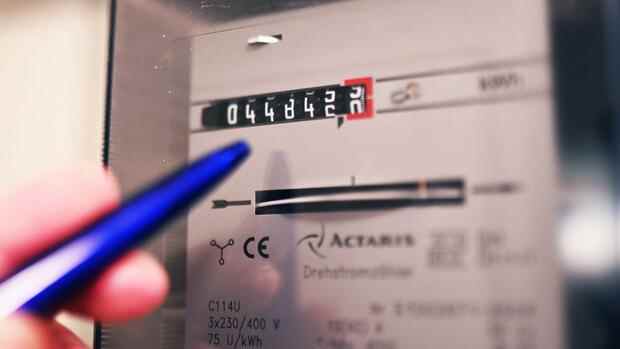Energy supply is also a service of general interest, said the energy policy spokeswoman for the SPD parliamentary group, Nina Scheer, to the Handelsblatt. “If this is no longer guaranteed due to price fluctuations in the segment of inexpensive energy offers, there is an urgent need for action.” The prices must guarantee that the suppliers can fulfill the contractual services. On the other hand, contracts must also be observed.
The consumer protection expert of the FDP, Judith Skudelny, sees no need for action. “Consumers must be aware that a cheap contract can end up being expensive,” the member of the Bundestag told the Handelsblatt. A cheap electricity tariff at the beginning could lead to ending up in the expensive alternative tariff of the basic provider. “As annoying as the process is in detail, politicians shouldn’t get involved in it,” emphasized Skudelny. The consumer centers, on the other hand, are obliged to monitor pricing and to put a stop to immoral tariffs through lawsuits.
In the course of the sharp rise in electricity and gas prices, several providers had terminated their customers’ supply contracts. In the case of the provider Stromio alone, consumer advocates speak of several hundred thousand households being affected. Many former customers of the low-cost providers fell into the replacement supply by the local basic supplier. These are obliged to initially continue to supply customers with electricity and gas if the previous supplier is no longer available.
Top jobs of the day
Find the best jobs now and
be notified by email.
According to the Federal Association of Energy and Water Industries (BDEW), the suppliers have to buy the additional amounts of energy very expensively in the short term. Many basic providers then introduced new tariffs for new customers. According to the comparison portal Check24 on Monday, more than 300 basic suppliers have introduced new tariffs exclusively for new customers. Their prices were an average of 184.7 percent higher than the previous tariffs, which means almost a tripling.
This practice is a thorn in the side of consumer advocates. On Thursday, the North Rhine-Westphalia consumer advice center announced that it had warned three basic suppliers about splitting the energy tariffs for new and existing customers.
Union for Political Intervention
The BDEW reacted with incomprehension. It is the wrong approach to look for the problem of increased tariffs for new customers with the basic suppliers. The reason is “rather the dubious cheap electricity providers,” explained the chairwoman of the BDEW general management, Kerstin Andreae, on LinkedIn. “They don’t meet their delivery commitments and dump their homegrown problems onto the basic suppliers.”
The Union also sees a need for action. “Regulatory measures must be taken to ensure that the electricity and gas providers can fulfill their contractually agreed deliveries and are therefore economically sound,” said the consumer policy spokesman for the Union parliamentary group, Volker Ullrich (CSU), the Handelsblatt.
In addition, the providers should not regularly refer to the “loss of business basis” as a reason for termination due to fluctuating energy prices. In the event of termination, electricity and gas providers would have to inform their customers more directly and in good time. “You can get the impression that some dubious electricity and gas providers are banking on the fact that the customers concerned do not usually take action against an unjustified termination because of the higher costs.”
The Greens did not rule out political intervention. “Various factors are responsible for the rising energy prices, including the corona pandemic and the effects of climate change,” consumer politician Tabea Rößner told the Handelsblatt. “Therefore, we have to take a close look at where there is a concrete need for action or regulation with regard to cheap electricity providers.”
Individual case is crucial
Irrespective of this, the Green MP advised those affected to defend themselves against the termination of their supply contracts. In case of doubt, the price increase does not justify the immediate termination, said Rößner. “Especially when the company in question has simply miscalculated and has not bought enough electricity.” In such cases, termination at the expense of the consumer is unacceptable.
At the same time, she thinks it is “fundamentally wrong to prematurely pillory the basic suppliers,” added Rößner. After all, they would have to look at how they can absorb the new customers.
Federal Consumer Minister Steffi Lemke (Greens), on the other hand, is critical of the expensive tariffs for new customers from local basic suppliers. If 90 or even 97 cents are now being charged for a kilowatt hour of electricity, this can no longer be explained by the increased procurement costs. “In my opinion, these surcharges are difficult to justify with market prices,” Lemke told Handelsblatt. “The courts may also be asked here.”
Party colleague Rößner pointed out that the federal government would provide short-term relief for consumers by further reducing the EEG levy and the planned increase in the heating subsidy for housing benefit. “This relieves many of those affected noticeably,” she said.
However, it is also clear that climate protection measures are not the price-driving factor and that cheaper electricity prices are only possible in the medium term if the expansion of renewable energies is consistently pushed ahead. “Because sun and wind don’t write an invoice.”
More: Chaos on the electricity market: low-cost electricity providers are a problem for municipal utilities and consumers

